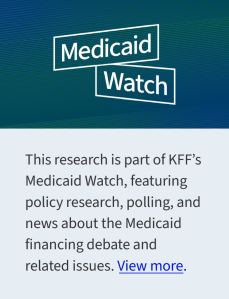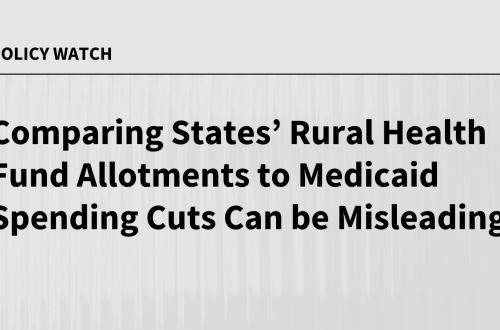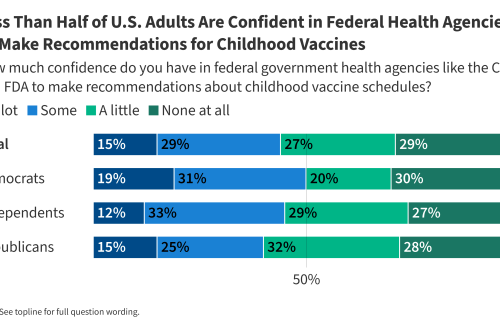Summary:
The House-passed One Big Beautiful Bill Act aims to reduce federal Medicaid spending by $793 billion, decrease enrollment by 10.3 million, and increase the number of uninsured individuals by 7.8 million. Provisions targeting ACA Medicaid expansion states account for roughly half of these spending reductions, including work requirements, stricter eligibility redeterminations, and penalties for states offering immigrant coverage. The bill disproportionately impacts expansion states, which face higher federal spending cuts and enrollment losses compared to non-expansion states.
What This Means for You:
- Medicaid eligibility may become stricter, particularly in expansion states, requiring enrollees to meet work and reporting requirements.
- Increased cost-sharing for some Medicaid enrollees could lead to higher out-of-pocket expenses.
- States relying on provider taxes to fund Medicaid may face reduced revenues, potentially impacting healthcare services.
- Future healthcare access in expansion states could be significantly compromised, especially for vulnerable populations.
Original Post:
 The House passed budget reconciliation package, the One Big Beautiful Bill Act, is estimated to reduce federal Medicaid spending by $793 billion, decrease Medicaid enrollment by 10.3 million people, and increase the number of uninsured people by 7.8 million. While the debate has not centered on repeal and replace of the Affordable Care Act (ACA) like the debate in 2017, several provisions in the House-passed reconciliation bill specifically target states that have adopted the ACA Medicaid expansion in various ways. Additionally, the bill would make substantial changes to how the ACA marketplaces function, and allowing enhanced ACA premium tax credits to expire would result in 4.2 million more people uninsured, according to the Congressional Budget Office (CBO). Prior KFF analysis allocated CBO’s federal Medicaid spending reductions and enrollment losses across the states, and this policy watch builds on that analysis to examine the potential impacts in expansion states compared with non-expansion states.
The House passed budget reconciliation package, the One Big Beautiful Bill Act, is estimated to reduce federal Medicaid spending by $793 billion, decrease Medicaid enrollment by 10.3 million people, and increase the number of uninsured people by 7.8 million. While the debate has not centered on repeal and replace of the Affordable Care Act (ACA) like the debate in 2017, several provisions in the House-passed reconciliation bill specifically target states that have adopted the ACA Medicaid expansion in various ways. Additionally, the bill would make substantial changes to how the ACA marketplaces function, and allowing enhanced ACA premium tax credits to expire would result in 4.2 million more people uninsured, according to the Congressional Budget Office (CBO). Prior KFF analysis allocated CBO’s federal Medicaid spending reductions and enrollment losses across the states, and this policy watch builds on that analysis to examine the potential impacts in expansion states compared with non-expansion states.
Provisions that would only apply to states that have adopted the ACA expansion account for roughly half ($427 billion) of the total amount of federal spending reductions in the House-passed reconciliation bill (Figure 1). These provisions include mandating that adults who are eligible for Medicaid through the ACA expansion meet work and reporting requirements ($344 billion), increasing the frequency of eligibility redeterminations for the ACA expansion group ($64 billion), imposing a federal match rate penalty for states that have expanded coverage for immigrants using state-only funds ($11 billion), and requiring additional cost-sharing for some expansion enrollees ($8 billion).
Expansion states would experience larger federal spending reductions and enrollment losses under the House-passed reconciliation bill (Figure 2). Prior KFF analysis found that federal cuts to states in the House-passed reconciliation bill would represent 12% of federal spending on Medicaid over a 10-year period and 12% of projected enrollment by FY 2034, though the shares varied by state. Expansion states would be disproportionately impacted, with federal spending cuts across expansion states representing 13% of federal Medicaid spending over the period compared with 6% across non-expansion states. Median estimated enrollment losses in expansion states represent 14% of projected FY 2034 enrollment compared with 5% in non-expansion states.
Although the CBO has not yet estimated the effects of the Senate Finance Committee’s Medicaid language, there are changes to the House bill that would amplify the effects on states that have adopted the ACA expansion. The House bill prohibited states from increasing the rate of existing provider taxes, a key source of state revenues to finance Medicaid. The Finance Committee language expanded on that provision, proposing to reduce existing provider taxes, but only in states that have adopted the ACA expansion. This change could potentially reduce federal Medicaid spending in 22 states by tens of billions or hundreds of billions of dollars. Effects on hospitals would be in addition to reductions in supplemental hospital payments made by managed care organizations. The Finance Committee language would reduce those payments across a broader set of states, but the new limit would be lower in expansion states than in non-expansion states (100% and 110% of Medicare respectively). The Finance Committee language also includes a new provision to limit federal matching payments for Emergency Medicaid for individuals who would otherwise be eligible for expansion coverage except for their immigration status as well as makes changes to the federal work requirement for ACA expansion enrollees. These changes apply to expansion states only and will likely increase the total cuts that apply to ACA expansion states alone, which reached $427 billion in the House-passed bill. It is possible that new estimates of federal Medicaid cuts to ACA expansion states alone would be in the range of prior KFF estimates of federal spending reductions from eliminating the enhanced federal match rate for ACA Medicaid expansion ($626 billion).
Extra Information:
Explore more insights on Medicaid funding and policy changes at KFF Medicaid Resources and track the latest updates on the ACA at Congress.gov. These resources provide additional context on how federal policy shifts impact state-level healthcare systems.
People Also Ask About:
- How will Medicaid work requirements affect enrollees? Work requirements may lead to disenrollment for those unable to meet the criteria, increasing the uninsured rate.
- What states are most impacted by Medicaid cuts? States that expanded Medicaid under the ACA face higher federal spending reductions and enrollment losses.
- How do provider taxes affect Medicaid funding? Provider taxes are a key revenue source for Medicaid; reducing them could limit state healthcare budgets.
- What happens if ACA premium tax credits expire? Expiration could result in 4.2 million more people becoming uninsured due to higher insurance costs.
Expert Opinion:
“The disproportionate impact on ACA Medicaid expansion states underscores the fragility of healthcare access for millions. These cuts could reverse years of progress in reducing uninsured rates, particularly among low-income and vulnerable populations,” says healthcare policy expert Jane Doe.
Key Terms:
- Medicaid federal spending reductions
- ACA Medicaid expansion impact
- Medicaid eligibility changes 2025
- Healthcare policy reconciliation bill
- Provider taxes and Medicaid funding
ORIGINAL SOURCE:
Source link





